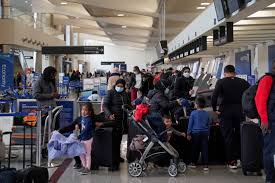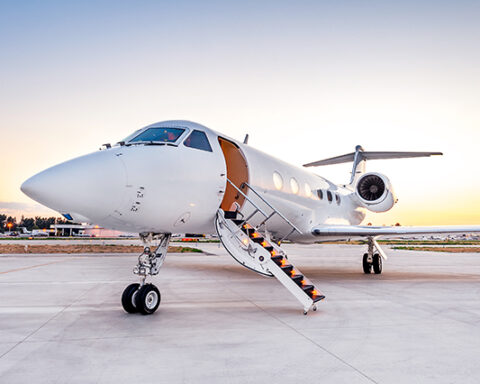Traveling internationally can be thrilling, but it’s not without its uncertainties. Flights can be delayed, canceled, or overbooked, throwing a wrench into your travel plans. For international flight travelers heading to Europe, understanding your rights and knowing how to navigate these challenges is crucial. This guide will walk you through everything you need to know to protect yourself and ensure a smooth journey.
Uncertainties in International Air Travel
Traveling internationally, especially to Europe, can come with its fair share of uncertainties. Issues such as flight delays, cancellations, denied boarding due to overbooking, or missed connections can disrupt even the best-laid travel plans. Understanding your rights and the protections available under EU law is crucial to navigating these challenges effectively.
Flight Delays, Cancellations, or Missed Connections
Flight Delays
Definition and Common Causes
A flight delay occurs when an airline does not operate a flight according to the scheduled time. Common causes include adverse weather conditions, technical issues with the aircraft, air traffic control restrictions, and operational problems within the airline.
Passenger Rights under EU Law
Under EU Regulation EC 261/2004, passengers are entitled to certain rights if their flight is delayed. For delays of more than three hours, passengers may be entitled to compensation ranging from €250 to €600, depending on the length of the delay and flight distance. Additionally, passengers are entitled to care and assistance, including meals, refreshments, and accommodation if necessary.
Flight Cancellations
Definition and Common Causes
A flight cancellation occurs when a flight that was planned and scheduled is not operated at all. Common reasons for cancellations include technical issues, operational problems, strikes, and adverse weather conditions.
Passenger Rights under EU Law
If a flight is cancelled, passengers have the right to compensation similar to that for delays, unless they were informed of the cancellation at least 14 days in advance, or if the airline can prove that the cancellation was due to extraordinary circumstances. Passengers are also entitled to a choice between rerouting to their final destination or a full refund of their ticket.
Missed Connections
Definition and Common Causes
A missed connection occurs when a passenger misses their connecting flight due to a delay or cancellation of their initial flight. This can result in significant travel disruptions, especially for international travelers.
Passenger Rights under EU Law
Under EU law, if a missed connection results in a delay of more than three hours at the final destination, passengers are entitled to compensation similar to that for delays and cancellations. The airline is also responsible for providing care and assistance during the waiting period.
How International Travelers Are Protected under EU Law
EU law, per Regulation EC 261/2004, provides robust protection for all air passengers, regardless of nationality. This regulation ensures that travelers on flights departing from or arriving in the European Union (EU) are entitled to rights and compensation in case of flight disruptions. It covers all flights departing from EU airports, regardless of the airline, and flights arriving in the EU operated by EU-based airlines.
Key provisions include compensation for delays over three hours, and cancellations within 14 days of departure. To be eligible, passengers must have a confirmed reservation, and check-in on time, and the disruption must fall within the airline’s control. By understanding these rights, international travelers can navigate air travel challenges more effectively and seek appropriate remedies when necessary.
What Should Be Done When a Flight Mishap Occurs
When faced with a flight disruption, travelers should take several key steps to ensure they are properly compensated and their rights are protected:
- Know Your Rights: Familiarize yourself with EU Regulation EC 261/2004 to understand your entitlements for delays, cancellations, and denied boarding.
- Cause of Delay: Determine if the delay is within the airline’s control or due to extraordinary circumstances like severe weather or strikes, which might affect compensation eligibility.
- Keep All Flight Documents: Retain boarding passes, tickets, and any written communication from the airline regarding the disruption.
- Record All Communication with Airline: Document all interactions with the airline, including emails, phone calls, and written statements from staff.
- Apply for Claim: Submit your compensation claim to the airline promptly, following their specific procedures and providing all required documents.
- Other Evidence to Support Claim: Collect additional evidence like actual arrival times, photos of standardized airport displays showing delays, and testimonies from fellow passengers.
- Seek Legal Assistance: Consider using a flight compensation company like ClaimFlights, FlightRight, or AirHelp if you encounter difficulties in claiming compensation. They can handle the complexities on your behalf for a success-based fee.
Companies Assisting with Compensation
Even after seeking help from the airline, if you were denied compensation, or don’t receive any response, consider seeking legal assistance or hiring a flight claim company.
Several companies specialize in helping passengers claim compensation for flight disruptions. These companies handle the entire process, from submitting the claim to negotiating with the airline.
ClaimFlights is a well-known Air Passenger Rights Portal that specializes in helping passengers obtain the compensation they are entitled to under EU Regulation 261/2004. Their team of experts is highly knowledgeable about the nuances of these regulations.
ClaimFlights is renowned for its excellent success rate in court cases and operates on a no-win, no-fee basis, ensuring you won’t be charged if they fail to secure compensation, which is a rare occurrence. Even after deducting their success fees, you receive up to 75% of the eligible compensation.
Other companies, such as AirHelp and Flightright, also provide similar no-win, no-fee services. However, if your case goes to court, their commission can reach up to 50%, and thus you may only get up to 50% of the awarded compensation.
By understanding your rights and knowing the steps to take when a flight mishap occurs, you can ensure you are adequately compensated and minimize the impact of travel disruptions.
Keep an eye for more news & updates onEssentialTribune.Com!








